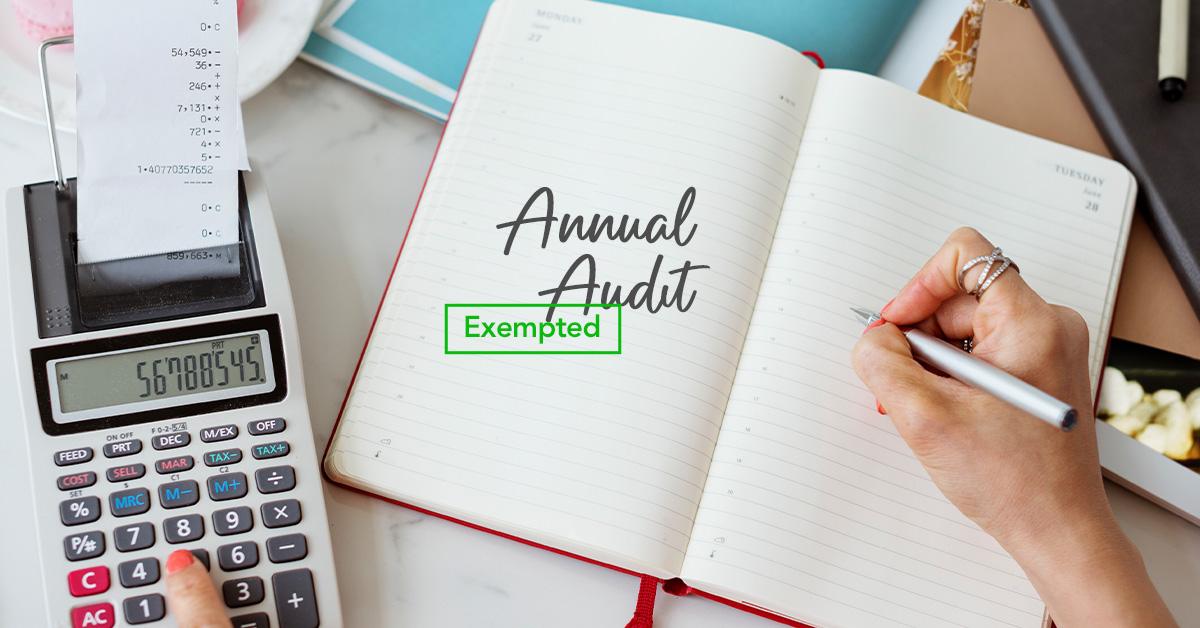

Navigating audit requirements can be challenging for small businesses. This article clarifies when a small company is exempt from these requirements by defining what constitutes a small business and outlining Singapore’s new criteria for audit exemptions. We will examine the recent modifications in audit requirements, what small companies need to prepare for unaudited financial statements, and the key components of these crucial financial documents. By understanding these essential aspects, small business owners can ensure compliance and better manage their financial obligations.
Qualifying as a Small Business
As a brief rundown, in Singapore, a private limited company can qualify as a small company, exempting it from statutory annual audits. Listed companies are automatically categorized as large corporations and must undergo annual audits. Additionally, a company qualifies as small if it meets audit exemption criteria over the past two consecutive financial years. These criteria are based on the company’s employee count, revenue from its primary business activities as defined in its Articles of Association, and total assets, including properties, cash, and trade receivables, following the latest accounting standards.
Updated Criteria
Under the Singapore Companies Act, all incorporated companies must undergo an annual audit of their financial statements and accounting records by a certified auditor. However, companies that qualify for the audit exemption criteria are not obligated to conduct audits but must still prepare and submit their financial statements in compliance with statutory requirements. This underscores the importance of maintaining accurate and up-to-date financial records, regardless of the company’s size or audit exemption status.
Significant revisions to the Companies Act in 2014 introduced a new audit exemption framework for small companies, effective July 1, 2015. To be eligible as a small company, it must meet at least two of the three criteria. Total annual revenue should not exceed S$10 million, and total assets should not exceed S$10 million at the end of the financial year, and having 50 or fewer full-time employees at the end of the financial year. A simple example of this would be a marketing agency employing 45 full-time staff members.
This audit exemption also applies to group companies, including holding and subsidiary companies, provided they meet the small group criteria. Thus, the revised legislation offers substantial relief to small companies and groups, alleviating the burden of mandatory audits while ensuring compliance with financial reporting standards.
Modified Requirements
A company that obtains the small company designation is entitled to an exemption from audits. However, this exemption is forfeited under two specific circumstances: if the company ceases to be a private entity during the fiscal year, or not meeting the criteria that have been set for small companies for two consecutive financial years. This ensures that only companies consistently meeting the required standards benefit from the audit exemption.
Audit Requirements
Many small companies in Singapore fail to understand the importance of compiling unaudited financial statements. These compilations, which include profit and loss records, balance sheets, and other financial reports, offer a clear picture of a company’s financial health. While companies exempt from audits still need to prepare a complete set of unaudited financial statements with explanatory notes and a directors’ statement, these documents must adhere to the Singapore Financial Reporting Standards. These unaudited statements are essential for annual general meetings, tax submissions, and shareholder accountability.
Unaudited financial statements generally consist of the statement of comprehensive income, the director’s statement, the statement of financial position, also known as the balance sheet, the statement of changes in equity, the cash flow statements, and financial documents. These records are not only necessary for internal and regulatory compliance but also beneficial for securing banking facilities, applying for government grants, and fulfilling industry-specific requirements.
Additionally, companies must comply with filing requirements such as lodging an annual return with ACRA within one month of the AGM, which includes details of company officers, the registered address, and auditors. The annual tax return must be filed with IRAS by November 30, based on the profits of the preceding financial year. Directors are responsible for ensuring compliance with these annual filing requirements.
The Connection to Unaudited Financial Statements
An unaudited financial statement provides a snapshot of a company’s financial position and performance without external verification. These documents are crucial for internal use, guiding management’s strategic decisions and offering immediate insights into the company’s financial health. Unlike audited financial statements, which undergo external verification, unaudited statements are ideal for quick internal analysis and can be used for regulatory compliance, such as annual returns with ACRA or filing income tax with IRAS.
However, most companies in Singapore are required by law to prepare audited financial statements, which offer a validated and comprehensive view of their financial status. These statements must be assessed by an independent auditor, ensuring accuracy and reliability. Small companies meeting specific criteria may be exempt from this requirement. Preparing unaudited financial statements is crucial for monitoring financial health and advising leaders on necessary operational adjustments.
The Process and Preparation
To prepare unaudited financial statements in Singapore, start by gathering all relevant financial data and supporting documents from the financial year. This includes records of cash flows, unaudited profits, incurred expenses, government grants, changes in equity, bank statements, and receipts. Next, compile this data into comprehensive financial reports, such as an income statement, a financial position statement, and an equity statement.
Once the financial statements are prepared, review them for compliance with the Companies Act, the regulations from the Accounting Standards Council, and IFRS. The executive management team and company secretary are part of this process. After ensuring compliance, draft the director’s statement to officially declare adherence to these standards.
Primary Aspects
A director’s statement, an income statement, and a balance sheet are technically included in an unaudited yearly financial statement. The directors’ statement affirms the company’s adherence to and responsibility for statutory requirements. The Comprehensive Income Statement, or profit and loss statement, outlines the company’s cash flow activity over the year. The financial position statement reflects changes in the company’s total assets, other comprehensive income, and incurred expenses. Additionally, an equity statement may be included to record changes in shareholders’ equity and investments, along with any necessary notes for clarity and precision.
The Preferred Auditing Service Provider
At Premia TNC, we specialize in the preparation of unaudited financial statements, ensuring accuracy and compliance with regulatory requirements. Our tailored approach involves meticulous attention to detail and adherence to accounting standards, guaranteeing that your financial statements reflect a true and fair view of your business operations. Whether you need assistance with compiling financial data, preparing statements for statutory reporting, or ensuring consistency in financial reporting practices, our team is dedicated to delivering reliable and confidential services. We strive to enhance transparency and provide insights that help you make informed business decisions with confidence.
When does a company need to undergo an audit in Singapore?
In Singapore, companies are required to undergo an audit if they do not qualify as a small company. Such a company must meet at least two of these criteria: annual revenue and total assets under SGD 10 million, and no more than 50 employees.
When does a company not need to undergo an audit in Singapore?
A company in Singapore is exempt from an audit if it qualifies as a small company for the financial year. If the company is part of a group, the group must be on a smaller scale.
Can a company be audited even if it is not statutorily required to do so?
Yes, a company can be audited even if it is not statutorily required. This may occur due to investor requirements, lender conditions, or internal management decisions for enhanced financial transparency and credibility.















